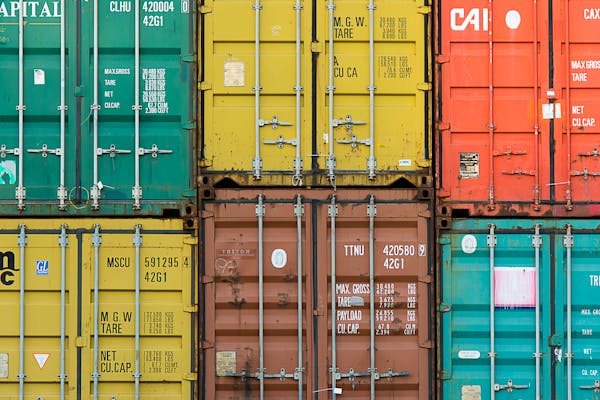Shipping Plastic Chairs from Guangzhou/Shenzhen to Tuticorin, India: FCL and LCL Shipping Solutions
Sea Freight Options: FCL and LCL
1. Full Container Load (FCL): For businesses or individuals with large shipments, opting for a Full Container Load (FCL) is often the most cost-effective solution. FCL means that your shipment will occupy an entire 20-foot or 40-foot container. The major advantage of using FCL for shipping plastic chairs is that the goods are less likely to be damaged because they are loaded in a sealed container, preventing any movement or exposure to external factors during transit.
- Shipping Duration: The sea journey from Guangzhou or Shenzhen to Tuticorin typically takes 15 days, depending on the specific route and vessel schedules.
- Container Sizes: A 20-foot container can hold around 8,000 to 10,000 plastic chairs, while a 40-foot container can accommodate up to 20,000 plastic chairs.
- CIF Terms: The shipping cost under CIF terms means that the seller is responsible for the cost of goods, freight, and insurance until the goods reach Tuticorin Port.
2. Less than Container Load (LCL): For smaller shipments, Less than Container Load (LCL) shipping is a viable alternative. LCL allows you to share container space with other shipments, which can reduce costs for smaller quantities of goods. If your shipment doesn’t require a full container, LCL can be a flexible and economical option.
- Shipping Duration: The estimated transit time for LCL shipping is also approximately 15 days from Guangzhou/Shenzhen to Tuticorin.
- Consolidation Process: With LCL, your plastic chairs will be consolidated with other shipments at the port of departure. After arriving at Tuticorin, the container will be deconsolidated, and your goods will be sent to their final destination.
- Packaging: LCL shipments typically require more careful packaging because your goods will be mixed with those of other customers, and there is a higher chance of damage.

Packaging for Plastic Chairs
Proper packaging is critical to ensure that plastic chairs arrive at their destination in good condition. Below are some common practices for packaging plastic chairs for both FCL and LCL shipments:
Individual Packaging: Each chair should be wrapped in protective materials such as bubble wrap, shrink wrap, or foam padding. This provides an extra layer of protection during the journey.
Carton Boxes: Plastic chairs can be packed in sturdy cardboard boxes. Each box should contain a manageable number of chairs to avoid excessive weight or risk of damage. The boxes should be sealed securely and labeled with clear shipping details.
Palletization: For easier handling and loading, plastic chairs can be packed onto wooden pallets. Palletization ensures the chairs are stable during the loading and unloading process. For FCL shipments, multiple pallets can be loaded into the container.
LCL-specific Packaging: In LCL shipping, additional care must be taken when packaging plastic chairs because they will be mixed with other goods. Each box should be carefully packed with enough cushioning materials to prevent movement within the container.
Weatherproofing: As sea transport can expose goods to humid or damp conditions, it is essential to waterproof the packaging, especially for LCL shipments where the goods are not sealed in an entire container. Waterproof shrink wrap or plastic liners can protect the chairs from water damage.
Customs and Documentation
When shipping goods internationally, customs clearance is an important step. For both FCL and LCL shipments, the following documents are typically required:
- Bill of Lading (B/L): This serves as the receipt for goods and the contract for the carriage.
- Commercial Invoice: This document includes details of the transaction, including product type, quantity, price, and terms of sale.
- Packing List: A detailed list of the goods packed in the shipment.
- Certificate of Origin: Indicates where the plastic chairs were manufactured.
- Import Customs Declaration: Required for customs clearance at Tuticorin Port.



